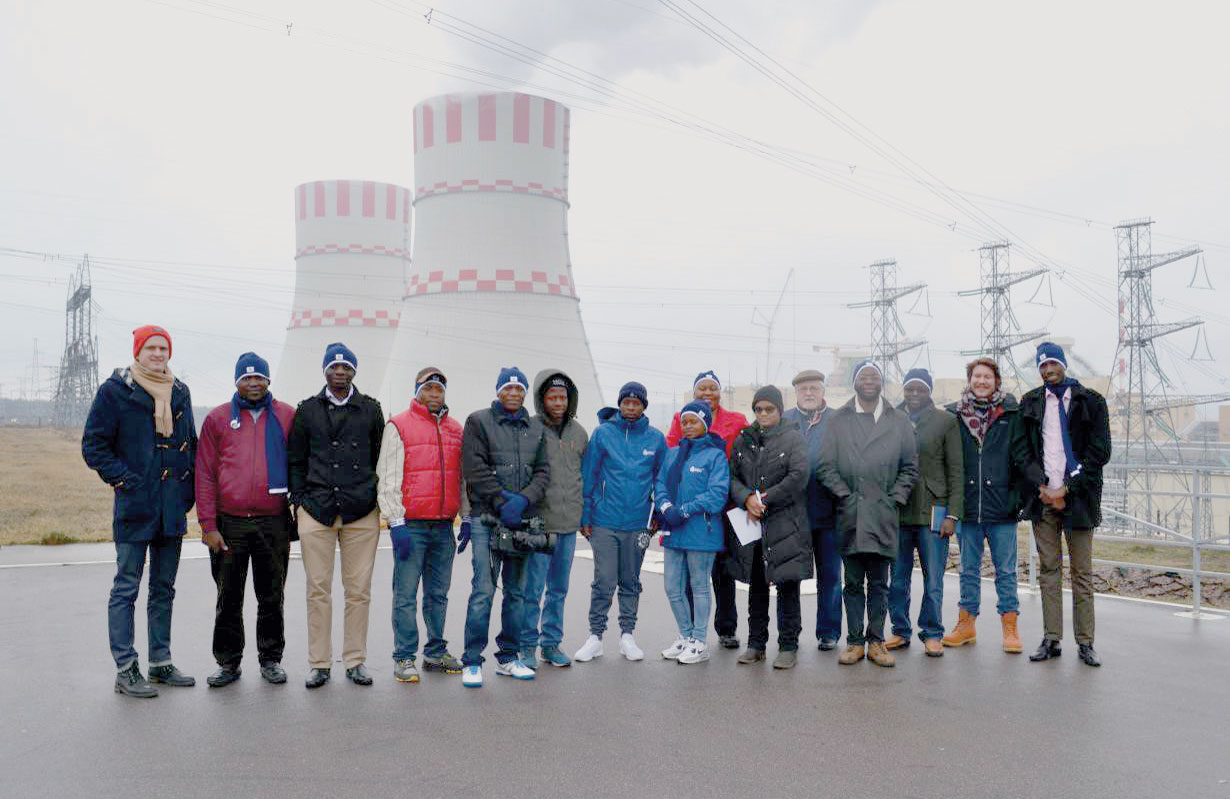

In a damp office at Ethiopia’s Addis Ababa University, doctoral student Hailu Geremew fantasises about working on the nuclear reactor his country is now pondering building.
“Oh that is my dream, my dream, my dream,” said the nuclear physicist, 32, wearing rectangular glasses and a cardigan.
Geremew is part of a new generation of African scientists whose prospects are expanding as their governments team up with foreign powers on a potential fast-track to electrification.
For now, South Africa is the only country on the continent operating a nuclear power plant.
But in recent years, at least seven other sub-Saharan African states have signed agreements to deploy nuclear power with backing from Russia, according to public announcements and the World Nuclear Association (WNA), an industry body.
Geremew first heard about the ambitious nuclear deal Ethiopia had struck with Moscow on the television news two years ago. The next day, his university department was buzzing with talk about it.
Ethiopia’s memorandum of understanding on nuclear cooperation with Russia paves the way for the construction of a nuclear power plant and a research reactor in the long term, said Frehiwot Woldehanna, Ethiopia’s state minister for the energy sector.
The East African country has been electrifying rapidly to meet rising energy demand and its own goal to become the biggest power exporter on the continent, while sticking to pledges to remain a low emitter of planet-warming greenhouse gases.
Under a 2015-2020 development plan, Addis Ababa wants to raise power generation to more than 17,000 megawatts (MW) from current capacity of just over 4,200 MW, mainly by harnessing hydro, wind and geothermal sources.
Its most ambitious project under construction is the Grand Renaissance Dam on the Nile river that will churn out 6,000 MW at full capacity when completed within the next four years, according to Ethiopian Electric Power, the state-owned utility.
But Woldehanna worries about betting on an abundance of water for the country’s main source of electricity, as droughts become more frequent.
With rivers sometimes drying up, “you cannot fully rely on hydropower”, he said, adding that nuclear technologies have “environmental” advantages over others.
Plans for a nuclear power plant in Ethiopia remain at the “pre-feasibility stage”, but the country is serious about building one, he emphasised.
With sub-Saharan Africa’s 48 countries generating the same amount of power as Spain, despite a population 18 times larger, the option to bring electricity access to their people on a bigger scale using nuclear energy is gaining momentum.
Nearly six out of 10 sub-Saharan Africans still lack access to electricity, according to World Bank data.
Like Ethiopia, emerging nuclear states Sudan, Kenya, Uganda, Nigeria, Rwanda, Zambia and Ghana have signed agreements with Russia’s state nuclear corporation, ROSATOM — most since 2016.
Their content ranges from language on the construction of nuclear reactors to assistance with feasibility studies and personnel training, press statements show.
ROSATOM’s solutions for managing spent fuel and radioactive waste vary from country to country, but are normally worked out at the later stages of a nuclear new-build programme “in the strictest compliance with international law”, a spokeswoman said.
Chinese state-owned nuclear firms have also taken the lead in the region, sealing deals with Kenya, Sudan and Uganda, WNA data shows.
South African student Masamaki Masanja, won a ROSATOM competition for young people to make videos about Africa’s nuclear potential, and got to visit the Novovoronezh nuclear power plant in western Russia in 2017. — Reuters
Sebastien Malo
Oman Observer is now on the WhatsApp channel. Click here



